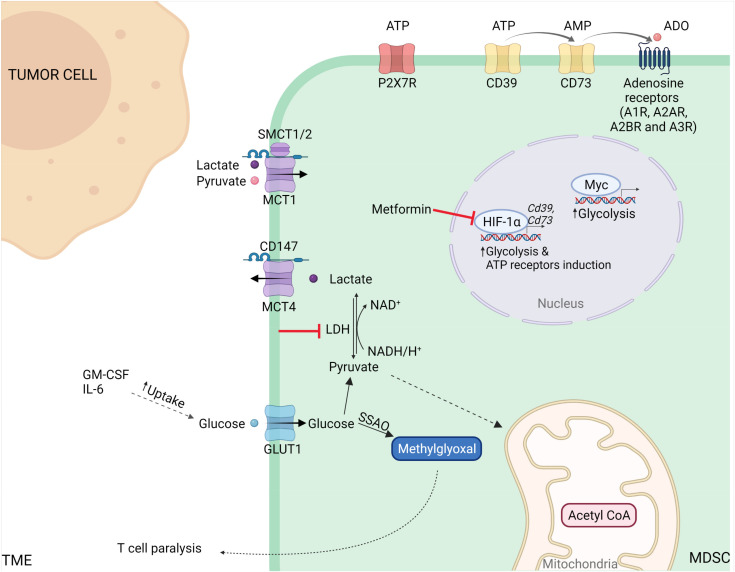Figure 1.
The effect of tumor microenvironment on the glucose metabolism of MDSCs. Cytokines (i.e., GM-CSF, IL-6) secreted by cancer cells boost both glucose uptake and MDSC glycolysis, leading to an increased production of lactate, that is transported across plasma membrane through monocarboxylate transporters (MCTs). Additionally, hypoxia regulates the glycolytic pathway of MDSC by hypoxia-inducible factor (HIF-)1α, that enhance the immunosuppressive features and the CD39/CD73 ecto-enzymes spread on MDSC membranes. Furthermore, the TME is rich in extracellular adenosine triphosphate (ATP) and its metabolites (ADP, adenosine diphosphate; ADO, adenosine), which can either stimulate P2X7R receptor or be degraded to ADO by the consecutive action of CD39 and CD73. NAD or NADH, nicotinamide adenine dinucleotide; SSAO, semicarbazide-sensitive amine oxidase; GLUT1, glucose transporter 1; SMCT, sodium-coupled monocarboxylate transporter; LDH, lactate dehydrogenase.

